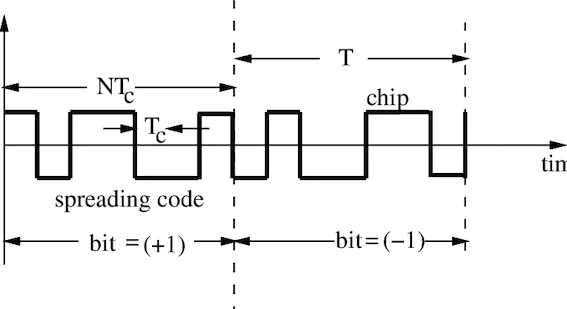Blind Beamforming in CDMA Systems

Beamforming in wireless communication systems with multiple receive antennas has been studied for the last three decades. Traditionally, the design of the beamformer is based on either the knowledge of the spatial signature of the signal of interest or the availability of a training sequence. It is, however, possible to use blind techniques to design the beamformer without any spatial reference or training sequence. This requires knowledge of some structural property of the desired signal (e.g., the constant modulus blind techniques).
We consider Spread Spectrum signals, which contain a rich time/frequency structure, for blind beamforming. One example is CDMA systems, where the temporal structure is given by the codes. It is possible to have coexisting users using different codes and still implement blind beamforming for each of the users.
Papers
-
Daniel P. Palomar and Miguel Angel Lagunas, “Temporal diversity on DS-CDMA communication systems for blind array signal processing,” EURASIP Signal Processing, vol. 81, no. 8, pp. 1625-1640, Aug. 2001.
-
Daniel P. Palomar, Montse Nájar, and Miguel Angel Lagunas, “Self-reference Spatial Diversity Processing for Spread Spectrum Communications,” AEÜ International Journal of Electronics and Communications, vol. 54, no. 5, pp. 267-276, Nov. 2000.